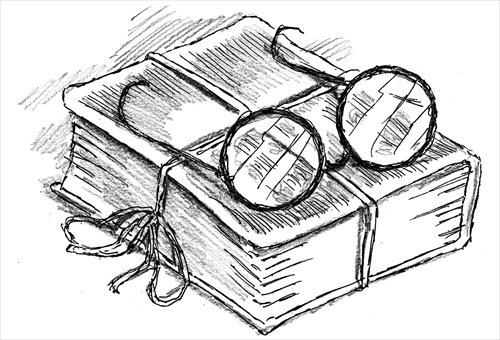Republican nostalgia shouldn’t overlook era’s real flaws

Illustration: Peter C. Espina/GT
Minguo, an abbreviation for the Republic of China (ROC), which ruled the Chinese mainland from 1912 to 1949, has become a new cultural icon among certain people in the People's Republic of China (PRC). It is hard to figure out exactly when many Chinese, especially "public intellectuals," started to be nostalgic toward the old days in the ROC, although most of them have no personal experience in that period of time.
Young men start to be fond of dressing like their grandpas or great grandpas, with Zhongshan suits (a style of male attire named after Sun Yat-sen, founder of the ROC) and round-rimmed spectacles, which they believe can show a sort of classic masculinity. Young women are becoming more interested in wearing vintage student uniforms, which were worn by their grandmas when they were at school, to take graduation pictures.
Public discourse has come up with a new catchphrase to define such keenness on the ROC history and lifestyle - "Minguo style." We can't criticize style. However, the trend has finally triggered a public debate about whether the Minguo days were good or bad, since some people are laying overwhelming emphasis on the past than on the present.
As to those so attached to the bygone days, they have put many lofty labels on the Minguo era, making it a sign of superiority, aristocracy and elitism. They describe the 37 years as "the best period of time in Chinese history," speaking highly of how many great academic minds appeared, holding dear how free bickering could be between the ruling Kuomintang Party and the oppositions, and lauding how "open-minded" education inspired independent thinking.
Not long ago, Zhang Lingfu, a Kuomintang general who was killed in the Chinese civil war, came under the spotlight after his son filed an appeal to a local government of Shandong Province to dig out his father's remains which were allegedly buried under a local farmer's sheepfold. A debate was soon triggered with attention focused on how to appraise Zhang, a hero in the War of Resistance against Japanese Aggression (1937-45) but a defeated opponent of the Communist Party in the civil war.
The Republican era, for quite a few decades after the founding of the PRC, was taboo in public discourse. In textbooks and government documents, this period of time was often defined as a dark age.
Whether it was really dark or not, as different people have different opinions, it was not even close to the best of times. Most ordinary people suffered a lot from hunger, poverty, infectious diseases, social turbulence and foreign invasions.
In recent years, as the Chinese mainland and Taiwan keep consolidating their relations across all walks of life, the historical feud has been much weakened. However, many people are still obsessed with forcing undeserving testimonials onto the Minguo era. Too much attention to some attractive portions of the era means they ignore the overall chaos.
The extension of Minguo style should be reviewed. This trend cannot be kidnapped and abused by a handful of public intellectuals who are trying to achieve hidden agendas, such as causing unnecessary public discontent. It is best that the cultural phenomenon can play its role just for aesthetical purposes, without political strings attached.
Meanwhile, how Minguo style has been politicized should serve as an alert to the authorities. They should know when Europe called for a renaissance, it didn't really want to go back to ancient Greece or Rome. It was just frustrated by the unearned power of a feudal aristocracy and hypocritical ideologues.
The author is a reporter with the Global Times. liuzhun@globaltimes.com.cn